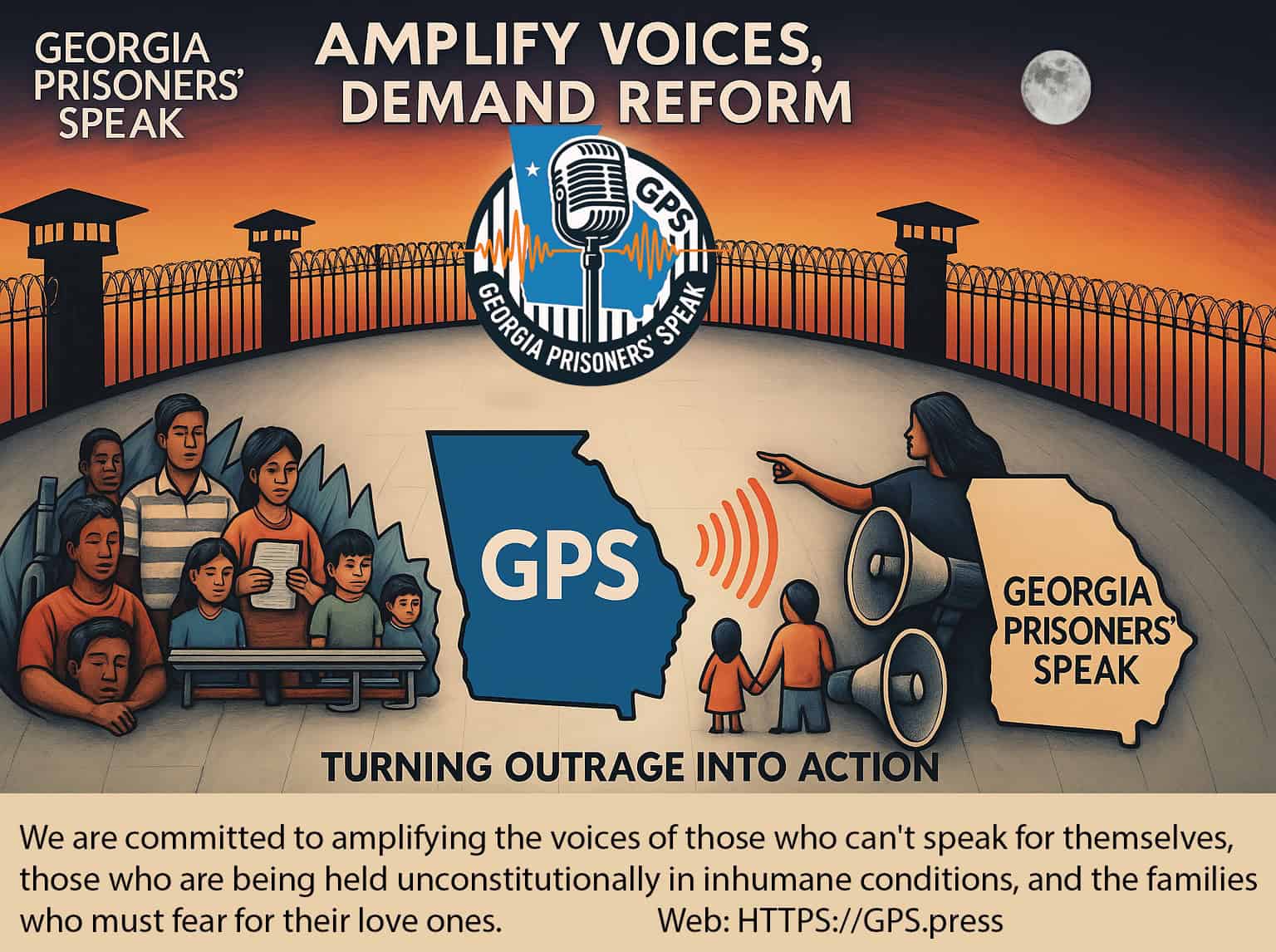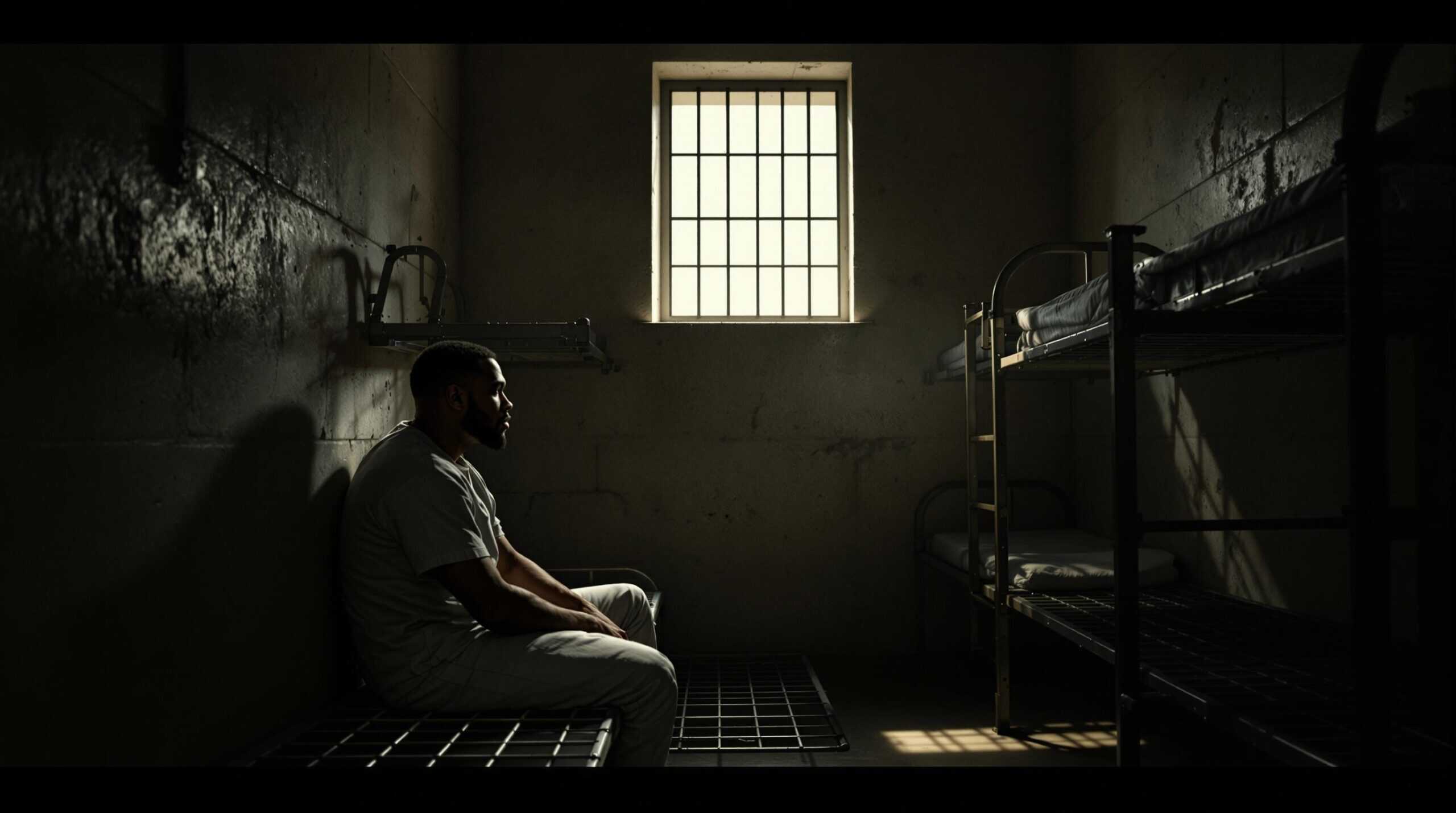The Department of Justice found Georgia prison guards use excessive force—and the state does nothing about it. Guards beat handcuffed inmates. They falsify reports to cover it up. They retaliate against anyone who speaks out. The DOJ documented constitutional violations. Georgia has known for years. 100+ homicides in 2024 show the violence continues. 1
What the DOJ Found
The Department of Justice investigation documented patterns of excessive force:
- Physical violence — Guards use force beyond what’s necessary to maintain order
- Attacks on restrained inmates — People already in handcuffs are beaten
- Chemical agents misused — Pepper spray deployed as punishment, not for safety
- Delayed medical care — Injured inmates wait hours or days for treatment
- Cover-ups — Staff falsify reports to hide use of force
These aren’t isolated incidents. The DOJ found systemic patterns across multiple facilities. 2
Why It Happens
Staff violence thrives when three conditions exist—Georgia has all three:
- Understaffing — Vacancy rates exceeding 49% mean less supervision of staff behavior
- No oversight — The department investigates itself; external review is rare
- Culture of impunity — Consequences for abuse are exceptions, not rules
Guards learn quickly that force carries no consequences. The few prosecutions—like the four guards sentenced for beating a handcuffed inmate—make news precisely because they’re rare.
The Reporting Failures
The DOJ found Georgia’s systems for tracking force incidents are designed to fail:
- Poor documentation — Incidents aren’t recorded, or reports are falsified
- Witness intimidation — Other staff and inmates face retaliation for reporting
- Grievance systems ignored — Prisoner complaints are dismissed without investigation
- No external review — Internal investigations clear staff; external oversight is absent
When force can’t be tracked, patterns can’t be identified. When patterns aren’t identified, nothing changes.
The Constitutional Standard
The Eighth Amendment prohibits cruel and unusual punishment. Hudson v. McMillian established that excessive force violates the Constitution when used maliciously rather than to maintain order. Georgia’s prisons violate this standard regularly:
- Force used for punishment, not safety
- Force continuing after the threat ends
- Force against restrained, non-resisting inmates
- Force followed by denial of medical care
The DOJ found these violations constitute a pattern—not isolated misconduct.
The Death Toll
GPS has documented 1,682 deaths in Georgia custody since 2020. Staff violence contributes to this toll:
- 333 deaths in 2024
- 100+ homicides — not all from inmates; some involve staff
- Delayed medical care after force incidents leads to deaths
- Suicide rates climb in environments of constant threat
Every death represents a constitutional failure the state refuses to address. 3
Take Action
Use Impact Justice AI to send advocacy emails demanding accountability for excessive force. The free tool crafts personalized messages to Georgia lawmakers—no experience required.
Demand:
- Mandatory body cameras for all correctional staff
- Independent investigation of all force incidents
- Criminal prosecution for staff who falsify reports
- External oversight of Georgia’s prisons
If you’ve witnessed or experienced excessive force in Georgia prisons, report it to GPS.
Further Reading
- Forced Criminality: Inside Georgia’s Prison Violence Factory
- Reporting Prisoner Safety Concerns
- GPS Informational Resources
- Pathways to Success
About Georgia Prisoners’ Speak (GPS)
Georgia Prisoners’ Speak (GPS) is a nonprofit investigative newsroom built in partnership with incarcerated reporters, families, advocates, and data analysts. Operating independently from the Georgia Department of Corrections, GPS documents the truth the state refuses to acknowledge: extreme violence, fatal medical neglect, gang-controlled dorms, collapsed staffing, fraudulent reporting practices, and unconstitutional conditions across Georgia’s prisons.
Through confidential reporting channels, secure communication, evidence verification, public-records requests, legislative research, and professional investigative standards, GPS provides the transparency the system lacks. Our mission is to expose abuses, protect incarcerated people, support families, and push Georgia toward meaningful reform based on human rights, evidence, and public accountability.
Every article is part of a larger fight — to end the silence, reveal the truth, and demand justice.

